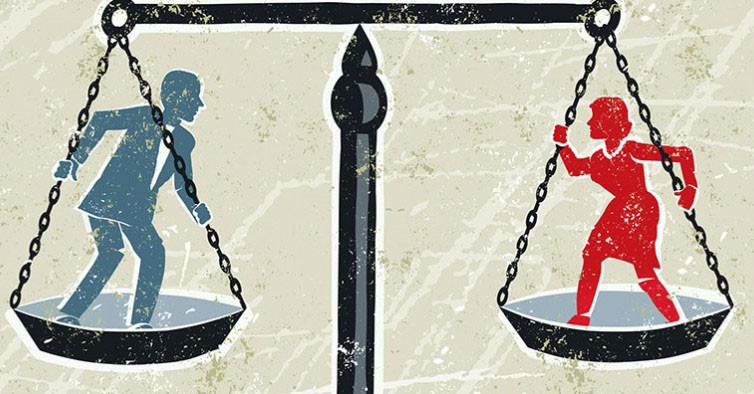
Most of our lives are dictated not by personal choice but by how the society will judge our actions

If you are a girl who has grown up in Pakistan, you would be pretty familiar with the phrase, "What will the people say?" It seems that most of our lives are dictated not by personal choice but by how the society will judge our actions, followed by our parents’ idea of what we should behave like.
Growing up in a somewhat privileged part of the society with access to quality education, girls are often admitted in schools which have a co-education system at the primary level. Perhaps, this in itself does not align with the conservative views of a vast majority of people here. Yet, considering that most of the top schools in the country offer co-education, parents proudly put their daughters into one of these. They teach them to become independent, to take pride in individuality. The young girls grow up in a bubble of fantasies, creating no distinction between themselves and the boys.
This bubble is soon popped when, like most of the schools in Pakistan, the primary level ends and the children are segregated into two different buildings, one for each gender. Suddenly, there are different playgrounds, separate school buses, a barrier with a guard standing in between the two buildings. If a girl is seen talking to a male friend who, only months ago, sat next to her in a class. It is seen as a shameful act and catered to promptly by the so called effective management of the school.
Occasionally, when there are events that require a joint audience, you see teachers standing over your head to make sure you do not glance in the other direction, as if they were a creature forbidden for you to lay eyes on.
Then there comes a point when you have to choose a pathway for your further education, opting for either the local matriculation system, or the British/American form of school. A fair percentage of the parents agree to the latter form of education, plainly for being known as a much more prestigious form of education, more suited to their reputation.
Since many private schools are built upon the western style of education, chances are that you’d end up in coeducation once more. After several years of being fed the concept of ‘keeping your distance’ from the opposite gender, it is perhaps no surprise that many of the enrolled students find it hard to adjust at first. Perhaps, this is when the little girl’s bubble once again begins to rise, as she tells herself that it was the backward class that made unnecessary distinctions between the two genders.
She goes on and makes friends, laughing over how the silly world kept portraying these people as aliens, when they are only ordinary humans like her. She finds herself more comfortable in the company of these new friends, discovering that there is much less drama in life when one avoids the series of dramatic catfights and backbiting sessions often as a package when it comes to all female friends. Life suddenly becomes a lot simpler.
Sadly, once more, the bubble bursts.
She notices the changed behaviour towards her as her number of friends of the opposite gender increases. At first, it is her own group of girls. The teachers who adored her over her active participation and insight, suddenly hint looks of disapproval. All around her, she sees people change expressions as she walks around with her newly made friends. Each part of the school judges her in a different way. The girls see her as a disgrace, muttering remarks for daring to socialise with people of the other gender. The boys who don’t get to roam with her, pass sly comments over how she has no character.
Perhaps, the saddest part is the fact that nobody comments on the boy who decides to be friends with a girl. Nobody would pass judgment over how he wasn’t brought up well enough etc., because boys will be boys.
We are taught equality in theory, fed the concept of believing that both genders are equal. But in practice, things are completely different. If a girl laughs loudly in a crowd full of men, she is frowned upon. If a girl decides to dress up, it is seen as an attempt to lure men towards her.
What happens when the girl dares to speak up against all the unfairness? She’s calmly informed that that’s how the society works, and the whole world cannot change upon her request. But is that really the truth? Perhaps, instead of always telling the girls to mend their ways, we should try and make the men in the society become less judgmental and more accepting of the fact that despite their overwhelming opinion, girls are humans, each with a different personality.